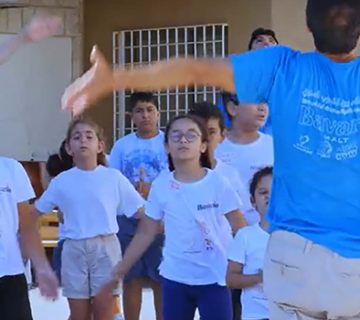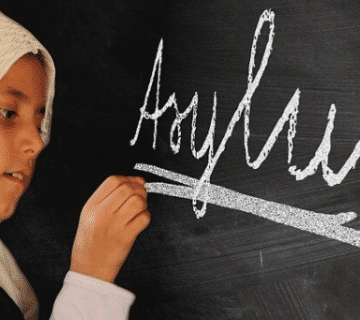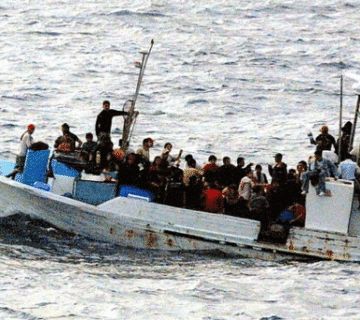 The dramatic picture of the disaster that struck Kashmir is well-known: over 50,000 dead, 65,000 wounded and more than 4,000,000 homeless. There are still some mountain villages that cannot be reached, even by helicopter. More than 5,000 wounded have been transported by helicopter to the hospitals of Rawalpindi and Islamabad, but the structures are absolutely inadequate. The state of emergency grows by the hour due to the risk of epidemics and infection. Many cases of tetanus have already been reported.
The dramatic picture of the disaster that struck Kashmir is well-known: over 50,000 dead, 65,000 wounded and more than 4,000,000 homeless. There are still some mountain villages that cannot be reached, even by helicopter. More than 5,000 wounded have been transported by helicopter to the hospitals of Rawalpindi and Islamabad, but the structures are absolutely inadequate. The state of emergency grows by the hour due to the risk of epidemics and infection. Many cases of tetanus have already been reported.
The ground continues to tremble, not just with aftershocks but with strong earthquake tremors. At night it is difficult to sleep while during the day rescue activities continue at a pressing pace.
Notwithstanding the fact that the aid extended is insufficient it is still a display of great generosity from governments of a large number of countries, as well as from international organizations. Someone commented that the prompt response of Europe and the United States is beginning to close the gap between the West and the Muslim world.
Also the people’s generosity is impressive; it knows no barriers of class, religion or nationality. In front of the wounded and homeless who have lost everything, one is edified by their great lesson of faith, that beyond all things, there is God who with personal love is helping men and women to discover what really counts in life.
Pakistani friends, both Muslims and Christians, have written us a touching letter that helps us know the human side of this catastrophe:
“Most of all we wish to share with you the story of some earthquake victims so that you may get to know them at least through these few lines. We want to take upon our shoulders at least a little of their suffering and pain, so that they may not feel alone but rather understood and helped in this situation they are in.” Here are some of their experiences:
 Among the victims in a hospital in Rawalpindi: As the wounded were extracted from the ruins, they were brought to Rawalpindi and Islamabad, and then to the different hospitals. We try to give support to the wounded because there is no one to listen to, and assist them especially in their personal needs. The hospital workers suggested that we give this kind of help which they deemed absolutely necessary. We feel it is important for us to be there to bear with them their suffering and be a concrete sign of God’s love.
Among the victims in a hospital in Rawalpindi: As the wounded were extracted from the ruins, they were brought to Rawalpindi and Islamabad, and then to the different hospitals. We try to give support to the wounded because there is no one to listen to, and assist them especially in their personal needs. The hospital workers suggested that we give this kind of help which they deemed absolutely necessary. We feel it is important for us to be there to bear with them their suffering and be a concrete sign of God’s love.
Alessandro, who went to Rawalpindi General Hospital says, “The scene one finds upon entering the hospital is beyond words. The lobby, the corridors, every empty space is occupied by stretchers and beds with women, men, and children – some in visibly serious condition – assisted as best as possible. Almost everyone is silent, with an absent gaze, probably in shock.”
The biggest lesson, however, comes from the earthquake victims themselves. They tell us very sorrowful and terrifying stories. A 17 year old student says: “I was in the classroom when the first shocks came. I was near the door and I quickly ran outside. As I turned, I saw the ground open up before my eyes and swallow all my classmates. I was the only survivor.”
A great number of persons have lost everything, and in many cases, their entire families. But the faith that these people draw from Islam makes them believe that in spite of everything there is a God who loves them and wants them to re-discover what really counts in life.
Rani visited a hospital ward. She stopped by a child who was still in shock. One of her legs was in a cast and the other, wounded. Rani offered her an apple and the little girl barely reacted. “Come on, tell her your name,” her father told her gently with a smile. Rani was touched by the scene and she asked the man where the girl’s mother was. “She’s gone,” the father replied with the same smile and profound serenity.
In such an atmosphere one realizes so clearly that everything vanishes, and all that remains is a true and concrete love that joins us together as one family.


 Italiano
Italiano Español
Español Français
Français Português
Português


